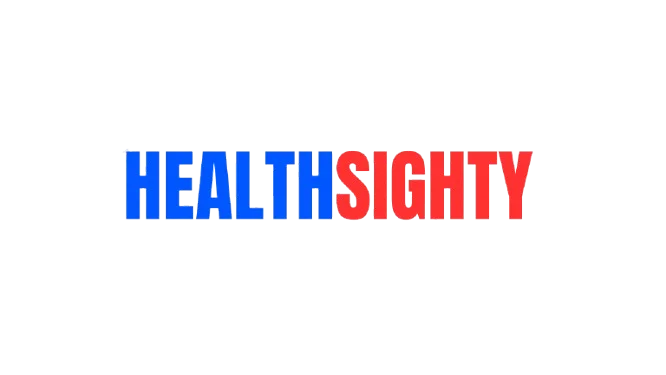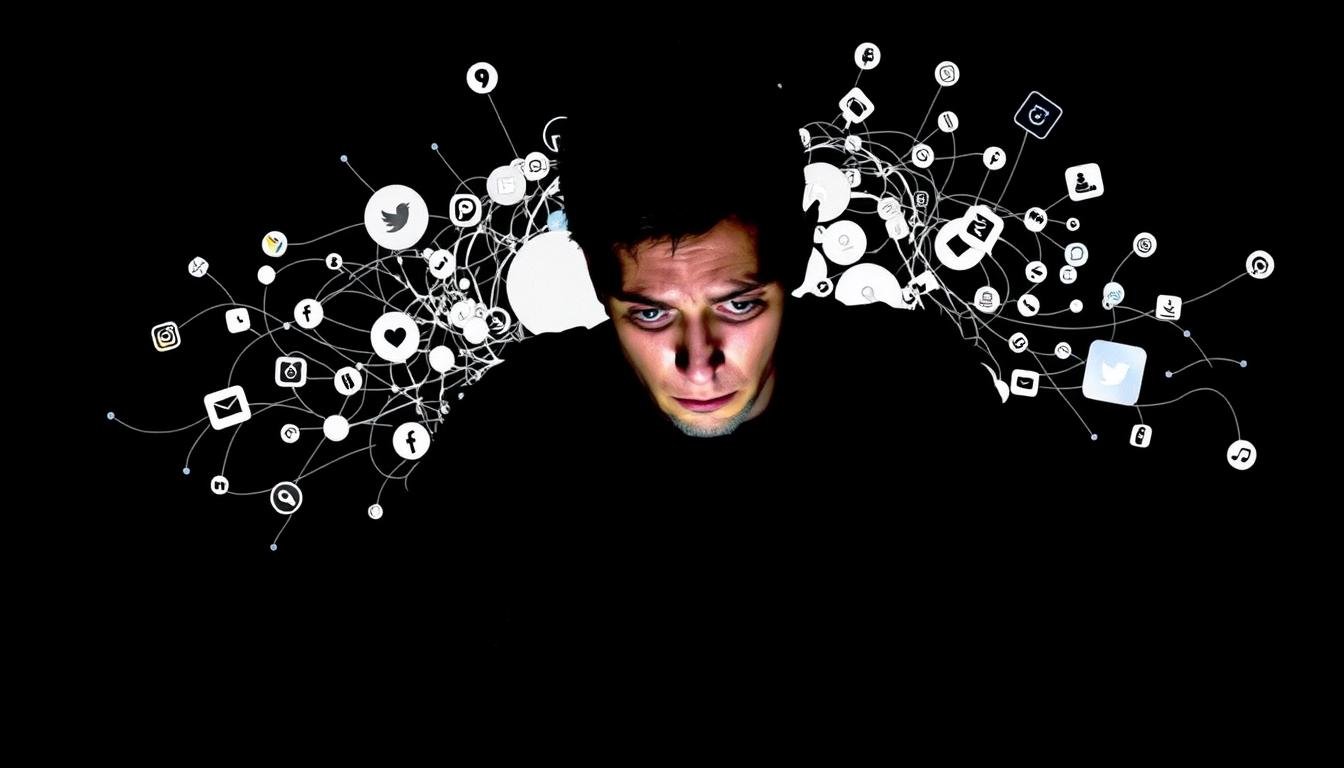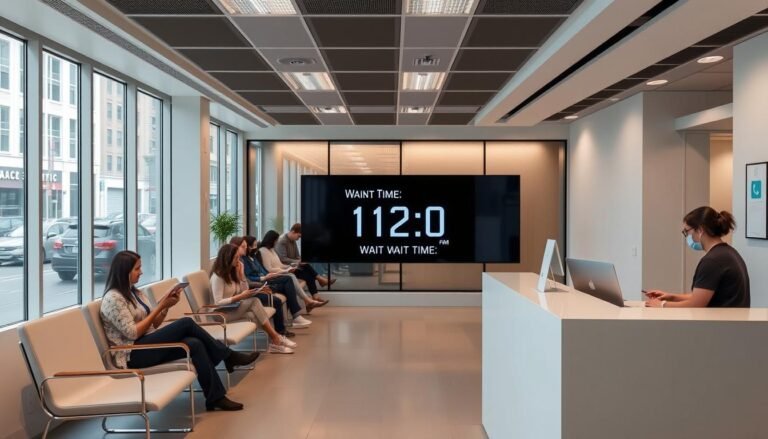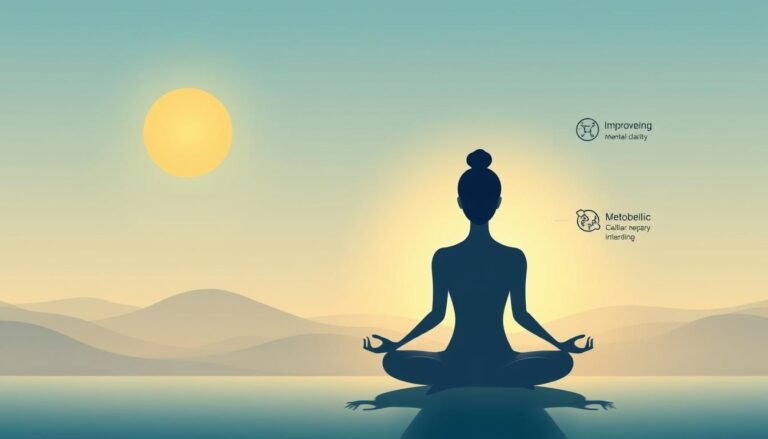Ever thought about how Instagram can change your mind in just 30 minutes? The talk about social media’s effect on mental health is growing. It’s a big deal in our world that’s always connected.
Digital sites have changed from simple ways to talk to each other. They now deeply affect how we feel. Social media changes how we think and interact with others in big ways.
Studies show social media can harm our mental health. It can make us feel anxious or burnt out. These problems are new to our generation.
Key Takeaways
- Social media dramatically influences psychological health
- Digital platforms create complex emotional environments
- Constant connectivity can trigger mental health challenges
- Understanding digital interactions is key for wellness
- Awareness leads to healthier online experiences
Understanding the Digital Mental Health Landscape
The digital world has changed how we connect and see ourselves. Social media is a big part of our lives, but it affects our mental health deeply. To understand this, we need to explore how our online actions impact our minds.
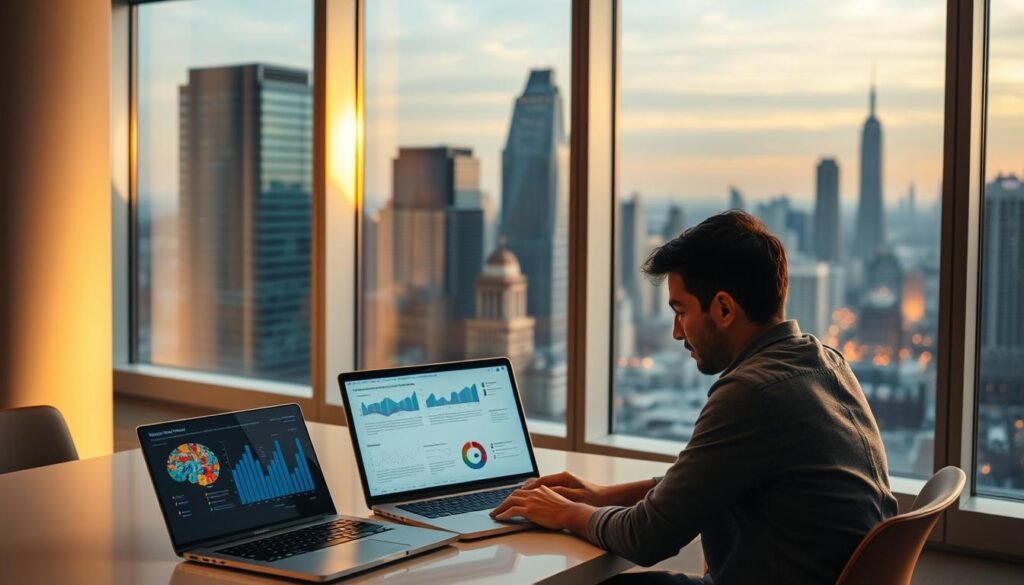
Recent studies show interesting facts about social media and depression. They found that too much social media can harm our mental health, mainly for the young.
Key Statistics on Social Media Usage and Mental Health
- 78% of young adults report feeling increased anxiety from social media
- Approximately 45% of users experience negative self-comparison online
- Screen time over 3 hours daily correlates with higher depression rates
The Evolution of Digital Communication
Digital communication has grown from simple texts to rich multimedia. Does social media cause anxiety? It’s a complex question. While it’s easier to connect, the constant need to be online brings new mental health issues.
Current Research and Scientific Findings
It’s vital to find ways to protect our mental health online. Experts suggest:
- Limiting daily social media exposure
- Practicing mindful scrolling
- Curating positive online environments
- Regularly disconnecting from digital platforms
“Understanding our digital interactions is key to maintaining psychological well-being in the modern age.” – Dr. Emily Roberts, Digital Psychology Researcher
The Impact of Social Media on Mental Health: Navigating the Digital Age
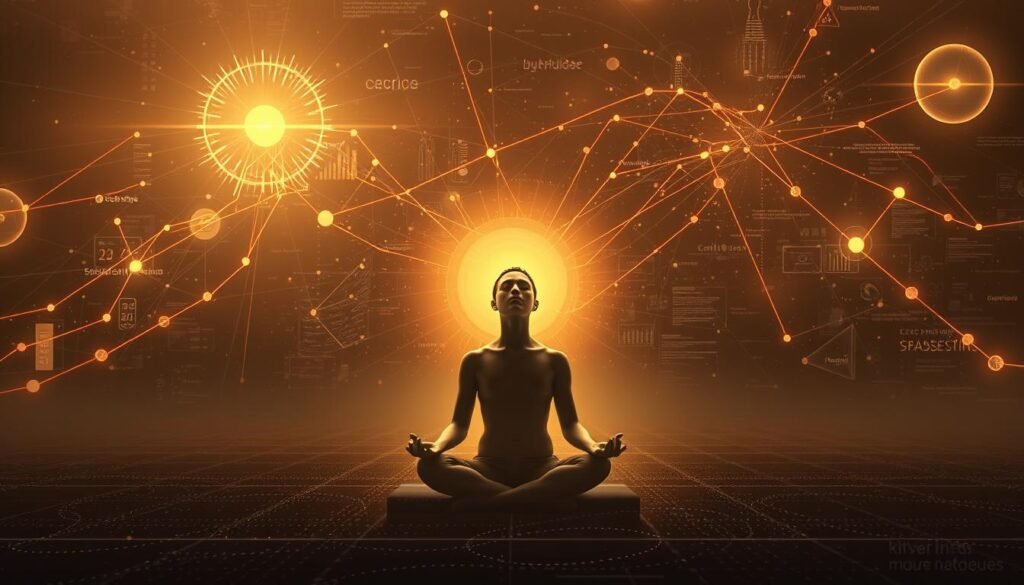
Digital platforms have changed how we connect and see ourselves. It’s key to navigate digital life with care to keep our minds healthy. Social media’s endless stream of info and interactions can be tough on our emotions.
Looking into how social media affects us shows some important points:
- It can make us anxious by making us compare and seek digital approval
- It can make our attention span shorter and our minds feel overwhelmed
- It can mess up our sleep by keeping us up late
- It can make us feel bad about ourselves
Trying a social media detox can help change how we use digital media. Strategic disconnection lets our minds refresh and cuts down on the mental exhaustion from too much digital stuff.
“Your digital health is just as important as your physical health.” – Digital Wellness Expert
Smart ways to use social media include setting limits, having screen-free times, and choosing what we see online. Being thoughtful about how we use social media can turn it into a positive way to connect with others.
- Limit how much time you spend on social media
- Scroll with purpose
- Focus on real-life connections
- Track your digital health
You have the power to shape your digital life. With the right mindset and actions, you can keep social media healthy and protect your mental health.
How Social Media Shapes Self-Esteem and Body Image
Social media has changed how we see ourselves and others. It creates big challenges for our mental health, like how we feel about ourselves and our bodies. It’s important to know how it affects us to stay healthy online.

Online, we see perfect images that aren’t real. These pictures can hurt our self-esteem and make us compare ourselves to others.
The Role of Filters and Edited Reality
Filters and photo editing tools have changed how we show ourselves online. With a few clicks, we can look perfect, but it’s not always true.
- Filters can change our face a lot
- Editing tools hide flaws
- Algorithms show only perfect content
Comparison Culture and Its Psychological Impact
“Comparison is the thief of joy” – Theodore Roosevelt
Social media makes us compare ourselves all the time. We see others’ best moments and feel bad about ourselves. This can hurt our mental health a lot.
| Comparison Trigger | Potential Mental Health Effect |
|---|---|
| Lifestyle Posts | Feelings of Inadequacy |
| Body Image Content | Decreased Self-Esteem |
| Career Achievements | Performance Anxiety |
Building Resilience Against Digital Beauty Standards
It’s key to set limits on social media to stay mentally well. Remember, most online pictures are not real. They don’t show what life is really like.
- Limit social media time
- Follow accounts that support body positivity
- Be mindful online
- Get help if you need it
Remember, your worth isn’t based on likes, filters, or comparisons online. Keeping your mental health safe online takes effort and kindness to yourself.
Social Media Addiction: Recognition and Prevention
Digital wellbeing in today’s world is tough with social media’s rise. It’s key to spot social media addiction signs to keep your mind healthy and avoid burnout.
Too much screen time can harm your mental health. It leads to a cycle of needing it more, affecting your feelings and mind. Knowing how to stop social media burnout means being aware and taking steps ahead.
- Recognize addiction warning signs:
- Constant checking of social media
- Anxiety when unable to access platforms
- Neglecting personal relationships
- Decreased productivity
Experts say there are ways to handle digital use and keep your mind safe:
- Set strict time limits for social media use
- Create phone-free zones in your home
- Use app tracking tools
- Practice mindful scrolling
| Addiction Level | Daily Social Media Time | Recommended Action |
|---|---|---|
| Low Risk | 30-60 minutes | Monitor usage |
| Moderate Risk | 2-3 hours | Implement time restrictions |
| High Risk | 4+ hours | Seek professional guidance |
Your mental health is more important than digital validation. Take control of your social media habits before they control you.
Digital Anxiety and Depression in the Age of Social Media
Dealing with mental health today is tough because of social media. These platforms change how we talk to each other. But they also bring up complex feelings that can hurt our mental health.
It’s important to understand how online life affects our minds. What we do online can change how we feel, think about ourselves, and handle stress.
Identifying Digital Mental Health Triggers
Spotting signs of digital anxiety and depression needs self-awareness. Some common triggers are:
- Constantly comparing ourselves to others online
- Being too hard on ourselves because of what we see online
- Spending too much time on screens and losing sleep
- Not seeing friends and family as much
Screen Time and Emotional Well-being
How much time we spend on screens affects our mental health. Studies show a strong link between screen use and how we feel.
| Screen Time Duration | Potential Mental Health Impact |
|---|---|
| 0-2 hours daily | Minimal negative effects |
| 3-5 hours daily | Moderate risk of anxiety |
| 6+ hours daily | High risk of depression |
Professional Support and Resources
If social media is too much, getting help is key. Therapists who focus on digital mental health can teach us to use social media better. They help us stay mentally healthy online.
- Online counseling platforms
- Mental health mobile apps
- Support groups focused on digital wellness
By taking control of our digital lives, we can turn social media into a positive force. It can help us connect and grow.
Creating Healthy Digital Boundaries for Mental Wellness
Exploring the digital world needs careful planning to keep your mind healthy. Instagram and TikTok can deeply affect your mental state. So, setting up clear digital limits is key to your mental health.
“Digital wellness is not about complete disconnection, but about creating a balanced relationship with technology.” – Mental Health Expert
Social media addiction and mental health are linked. Spotting the signs early is the first step to a healthier online life. Here are some tips to help you take a break from social media and stay mentally well:
- Set specific time limits for social media usage
- Create device-free zones in your home
- Turn off notifications during work and personal time
- Practice mindful scrolling
Knowing how digital always-on affects us helps us make better choices. Sites like Instagram and TikTok can lead to feeling bad about ourselves and anxious. It’s important to control what we see online.
| Digital Boundary Strategy | Mental Health Benefit |
|---|---|
| Daily Screen Time Limit | Reduces anxiety and improves focus |
| Unfollow Negative Accounts | Improves self-esteem and emotional well-being |
| Weekly Digital Detox | Enhances mental clarity and reduces stress |
Your mental health is the most important thing. By using these strategies, you can make your digital life more balanced and positive. This supports your overall well-being.
The Impact of Social Media on Teen Mental Health
The digital world brings unique challenges to teens on social media. It’s important to understand how online interactions affect their minds. Teens face pressures that can harm their self-esteem and emotional health.
Understanding Digital Peer Pressure
Digital peer pressure changes how teens interact. Social media makes them feel watched all the time. Learning to handle this pressure is key to staying mentally healthy.
- Constant comparison with peers’ online images
- Fear of missing out (FOMO) leads to too much social media use
- Need to keep up a perfect online image
Cyberbullying and Its Psychological Impact
Cyberbullying is a big threat to teen mental health. Online bullying is constant and can cause deep emotional pain.
| Cyberbullying Type | Potential Psychological Effects |
|---|---|
| Harassment | Anxiety, Depression |
| Social Exclusion | Low Self-Esteem |
| Online Humiliation | Social Isolation |
Parental Guidance Strategies
Parents are key in helping teens deal with social media. Talking openly and setting digital rules can help avoid harm.
- Have regular talks about online life
- Set limits on screen time
- Teach how to think critically about online content
- Watch social media without being too invasive
Empowering teens with knowledge and support is key to navigating the complex digital landscape.
Mindful Social Media Usage: Practical Strategies
Using social media wisely is key to keeping your mind healthy. It’s important to have good habits when using social media. This helps reduce the negative effects of digital life in 2025 and later.
How you use social media affects your mental health. Here are some simple steps to make your online time better:
- Set clear time boundaries for social media consumption
- Curate your feed to promote positive content
- Practice digital mindfulness techniques
- Regularly audit your online connections
“Digital wellness is about quality, not quantity of online interactions.”
The effects of social media on mental health in 2025 will be big. Being aware and using smart strategies can help keep your mind healthy.
| Strategy | Mental Health Impact |
|---|---|
| Limited Screen Time | Reduced Anxiety |
| Positive Content Curation | Enhanced Emotional Resilience |
| Regular Digital Breaks | Improved Psychological Balance |
Your digital experience is within your control. Prioritize mental wellness by making intentional choices about your social media consumption.
Benefits of Digital Detox and Social Media Breaks
Digital detox is key for keeping our minds healthy in today’s world. It’s important to step away from screens now and then. This helps us understand how social media affects our mental health.
Being on social media too much can hurt our mental health quietly. Taking breaks helps us feel better and find emotional balance. These breaks give us time to think deeply and lower stress from digital overload.
- Reduce screen time by setting daily limits
- Create technology-free zones in your home
- Schedule regular digital detox periods
- Practice mindfulness during breaks
Teaching teens to use social media wisely is vital for their mental health. Parents can show them by being good examples. They can show the benefits of taking a break from screens.
| Digital Detox Duration | Mental Health Benefits |
|---|---|
| 24 hours | Reduced anxiety, improved sleep |
| 1 week | Enhanced focus, increased productivity |
| 1 month | Significant mood improvement, better interpersonal connections |
Remember, digital detox is not about complete elimination but creating a healthier relationship with technology.
Conclusion
Social media can be a big problem for our mental health if we use it too much. But, it doesn’t have to be stressful or make us anxious. By knowing the risks, we can take steps to keep our minds healthy.
Using social media can make us feel anxious because of all the information and comparisons. It’s not about cutting out social media completely. It’s about using it wisely and taking care of our mental health first.
Getting better at using digital media is a personal journey. Start by taking breaks from screens, choosing what you see online, and being careful with how you use social media. Remember, your mental health is more valuable than any online reaction.
Seek help from friends, family, or mental health experts if you need it. They can help you manage your digital life better.
In the end, you can control how social media affects you. By being smart about it, setting limits, and focusing on your mental health, you can make social media a positive part of your life.
